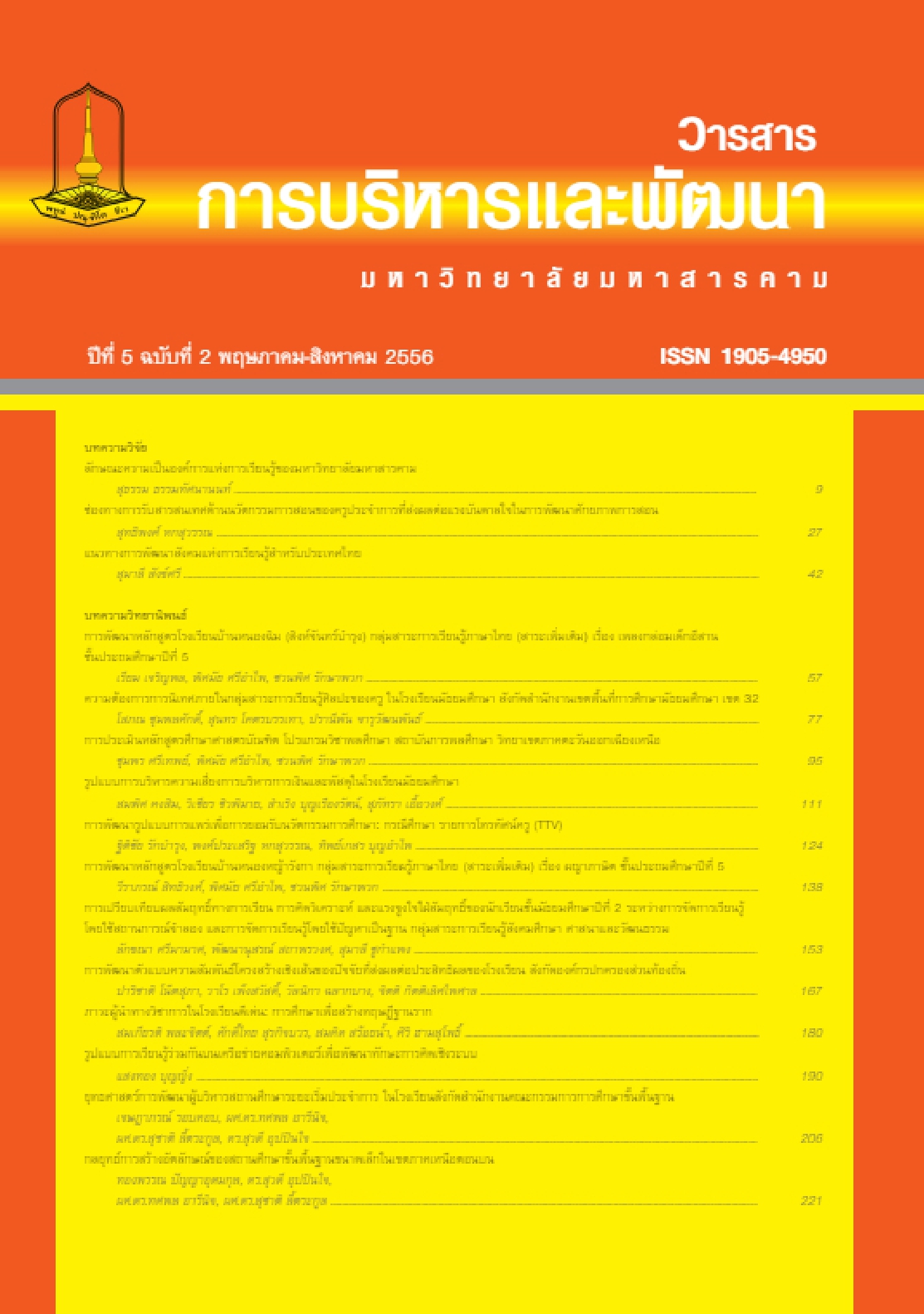Instructional Leadership in Excellence School: A Grounded Theory Study
Main Article Content
Abstract
The objective of this study was to understand the characteristics from a instructional leadership in excellence school. The researcher selected the study by using theoretical sampling and identifying a big–size congruent with the research objectives. The researcher participated in the study and collected data through observations and field notes, in-depth interviews, document analysis, and focus group discussion. The key informants were the school administrators team, the task leader, teacher award, the school committee, alumni and community leader, the students’ caretakers, the students, education supervisor, administrators and teachers in network center and school visitors. Data was analyzed by using translating and interpretative data. Then, the concepts were depending on theoretical sensitivity. The data analysis system was organized by computer program. The findings were as follows: The study found that a instructional leadership is 3 levels: 1. The major characteristics of person instructional leadership in excellence school were 15. 2. The major characteristics of team instructional leadership in excellence school were 24. 3. The major characteristics of school instructional leadership in excellence school were 25. The consequences resulting from being instructional leadership in excellence school, the positive effects were 11 and 4 negative effects.
Downloads
Article Details
References
Bodhi Sita, Chai. (2004). Art and Science of Qualitative Research. Nakhon Pathom: Mahidol University.
Chan varnish, Amrug. (2004). Guidelines on the Best Practice for Quality Schools. Bangkok: Picwangraphics.
Charmaz, Kathy. (2006). Constructing Grounded Theory: A Practical Guide Through Qualitative Analysis. California: Sage.
Hoy, WK. and Miskel, C.G.. (2005). Educational Leadership and reform. United States of America: Information age publishing inc.
Sanrattana, Wirot. (2005). School administrators Three-dimensional professional development to become effective leaders. 5nd Edition. Bangkok: Tipwisutt.


